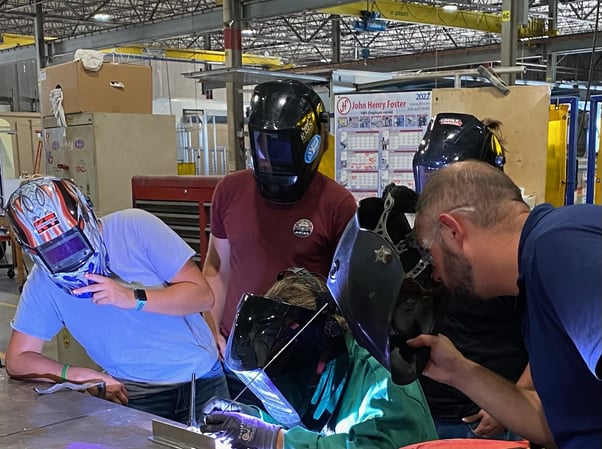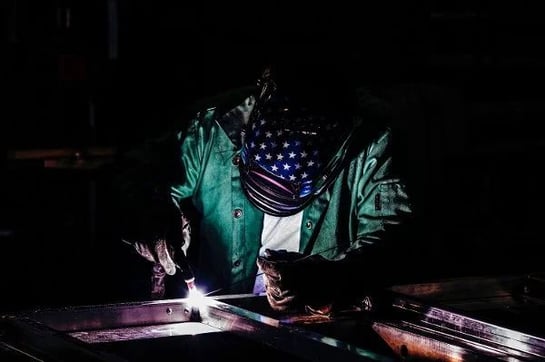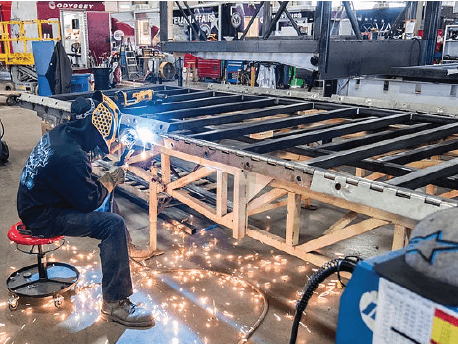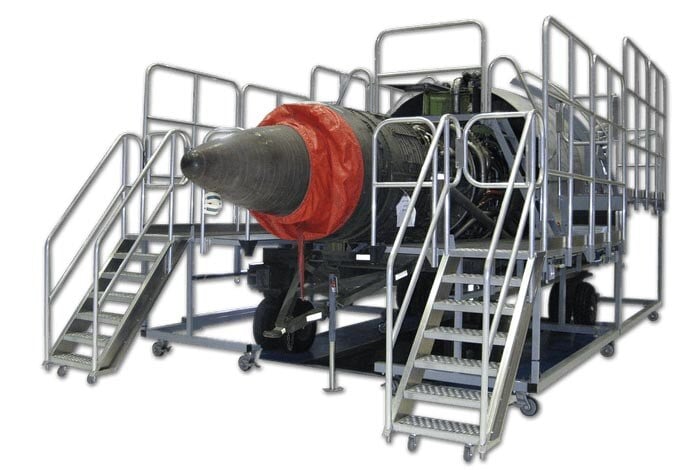How Does Industrial Fabrication Work
Industrial fabrication is a process in which specialized machinery alters raw materials to specific shapes. Without the fabrication industry, there...
5 min read
Craftsmen Industries Oct 3, 2023 9:25:00 AM

Working in the industrial fabrication industry is becoming increasingly popular in the last few years. If your company is looking forward to hiring someone in this field, the person should meet the needed qualifications for a career in this field.
As experts in the industry with more than 40 years of experience, we are here to help you find the perfect candidate for the job. We will go through every aspect you should pay attention to, from interpersonal skills to formal training and certifications.

Source: craftsmenind.com
Industrial Fabrication Services include complex manufacturing processes that turn raw materials into the desired product. Having this in mind, industrial fabricating goes through different phases where each employee should have specific fabrication skills and training based on the position they are working on.
We will take our company as an example. The fabrication process in Craftsmen Industries includes experts in different fields. We start with the product's design and drawing and continue with material selection.
Next, the process has a lot of steps that might depend on the product but generally include:
For each step of the way, your company needs a qualified worker so the job can go smoothly. With the right workers, this work can be effective and efficient, all while offering high-quality products.
With so many positions, your company should know exactly what type of worker it needs. Here is a list of the most common positions.
Now, let’s dig deeper into the skills needed in this industry careers.
Every worker, no matter their position, needs to have the following interpersonal skills:
Aside from these skills, people higher on the leader, such as managers in the process, must have excellent leadership skills, empathy, negotiating skills, and possess great multitasking abilities.
As for the training and education requirements for this field, they differ according to the position.
Metal fabricators are one of the highly requested job positions in the industry. In fact, there are 58,870 metal fabricators and fitters in the U.S. who earn a mean annual wage of $48,870.
If your company needs a metal fabricator for an entry-level job and offers on-site training, you should look for candidates with a high school diploma or GED.
On the other hand, the perfect candidate for more complex metal fabricator positions should have an Associate of Applied Science degree in technical skills. On top of that, we also recommend you look for someone with certain experience as a metal fabricator.
Also, we always see it as a bonus if a candidate has additional certifications like those from the Fabricators and Manufacturers Association and MCA.
Welders are skilled professionals who are often in demand in this industry. In particular, welders are responsible for joining metal pieces into one using welding techniques.
When hiring a welder, you should look for someone knowledgeable about the position; we recommend looking for candidates with previous experience, recommendations, and certifications like the ones from the American Welding Society.
On the contrary, if you want to hire an entry-level welder and offer them on-the-job training. In such a case, the company should be able to provide a median annual pay of $47,540.
In the U.S., there are 1.9 million assemblers and fabricators in all industries. As a company, you should set aside approximately $37,930 for each assembler if you want to give them the median pay.
The qualifications for an assembler are almost the same as for welders. A high school diploma or equivalent education is, in most cases, enough. Additional certifications are generally not required but are always welcomed.
The needed qualification for a career in this industry as a designer is typically a Bachelor’s Degree in Engineering. Since education requirements for the jobs as designers are a minimum of a university degree, the median pay for the position in 2022 was $75,910.
Also, in Craftsmen industries, we require experience in design engineering and the ability to gather and analyze data. Ultimately, because of the nature of the work in our company, we require knowledge of 3D modeling (preferably AutoCAD) and PLC programming.
Ensure you adapt the technical skills you require from the candidate to match the techniques and tools you use in your company. This is especially important for computer-aided design software (CAD).

Source: craftsmenind.com
Our experience taught us that the most suitable candidates for laser cut operators are people with high school diplomas, that possess a great attention to detail. Optionally, you can ask for a technical certification or other type of accreditation to ensure that the operator has some experience in the job.
We, like most employers in the U.S., require a high school diploma or equivalent for our field installers. However, it is important to require some additional skills depending on the products the employee should install. In most cases, you should look for candidates with experience or knowledge in the field.
In 2022, the U.S. had 507,900 people employed as industrial machinery mechanists, with the median annual pay of mechanists being$59,470.
As a company, you should provide on-the-job training for mechanists, and it typically takes takes around one year of training to become an experienced mechanic.
The trainees should be people who are at least 18 years old, physically capable of working and have a high school diploma or equivalent.
Other important roles in the this industry's process are painters and finishers. We warmly recommend hiring someone with previous experience because the painting and finishing jobs are delicate and require precise work.
Some skills to look for in painters include proficiency in spray painting with pressure pots and different kinds of air and electric hand tools.Regarding formal education, it is recommended for the applicant to have a high school diploma or to have undergone some additional training.
The qualifications for a career in this industry as quality control, typically include a high school or trade school diploma. In addition, supervisory experience or another similar role is often required.
Quality control employees should possess knowlegde in mechanical and equipment troubleshooting. Additional skills include proficiency in math, the ability to use different mechanical measuring devices, and the capacity to analyze and solve problems quickly.
Most industrial fabrication careers require certain physical skills. Almost every position is dynamic and requires constantly moving around and sometimes even lifting heavy tools and materials.
At Craftsmen Industries, we provide internal testing for some of the candidates. This is a great way if you want to ensure the person you are considering for the role is capable of executing the job successfully and possesses the the skills to do it efficiently.
Aside from preparing a list of qualifications you expect your future worker to have, we tend to make a second list of what we offer our future employees. From day one, our workers know their rights, work rules, job responsibilities, benefits, and possibilities to advance in their careers.
For instance, we get a lot of positive feedback because we offer each candidate an equal opportunity to showcase their abilities and skills, even during the hiring process.
Some of the things you can offer to your candidates:
A crucial part of the process of finding the best employees is ensuring your job post gets to the right people. Some of the best ways to advertise your job vacancies are:
Source: craftsmenind.com
Metal fabricators have a wide palette of responsibilities. Some of the most important include interpreting engineering blueprints, marking cutting and bending lines, setting up metalwork machinery, and using different types of tools and equipment.
An employee in metal fabrication should have strong interpersonal and technical skills. The most common fabrication skills are blueprint reading, mechanical, match, computer skills, active listening, time management, decision-making, monitoring, and assessment skills.
By knowing the needed qualifications for a career in industrial fabrication, your company will be one step closer to improving the quality of the final products. All employees should have exceptional interpersonal skills, proper education, and willingness to work.
As a company that has been in the industry for a long time, we have learned that investing in lifelong learning and constantly building a healthy working environment is equally important. Last but not least, following the industry trends and investing in new machinery is a key to success.
Industrial fabrication is a process in which specialized machinery alters raw materials to specific shapes. Without the fabrication industry, there...

Industrial fabrication is a complex process that includes many steps. One of the key phases is welding. But what is welding in industrial...

Industrial fabrication is the process of creating custom metal structures, parts, and components by cutting, shaping, and assembling raw materials....